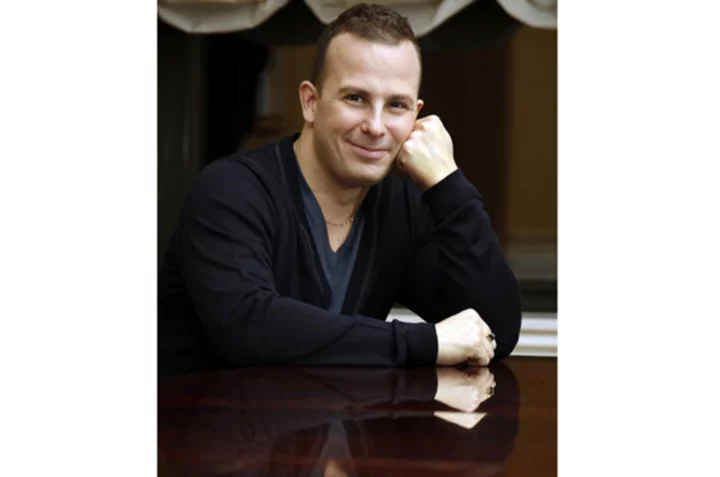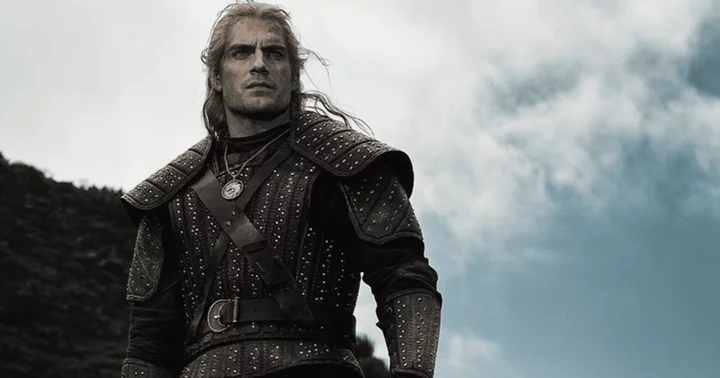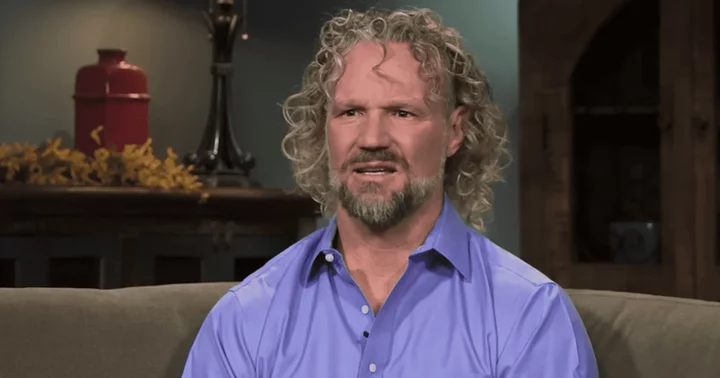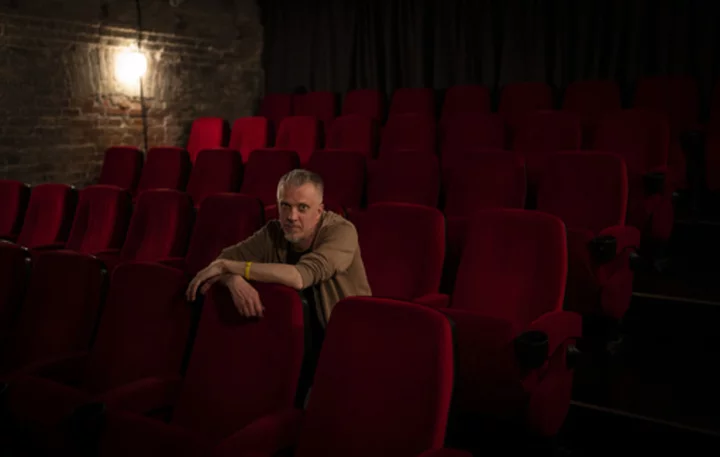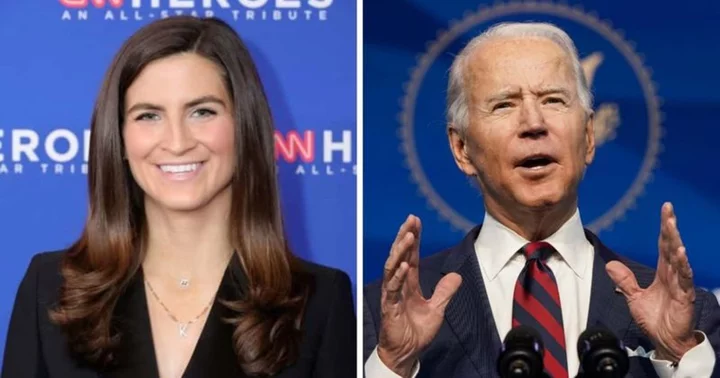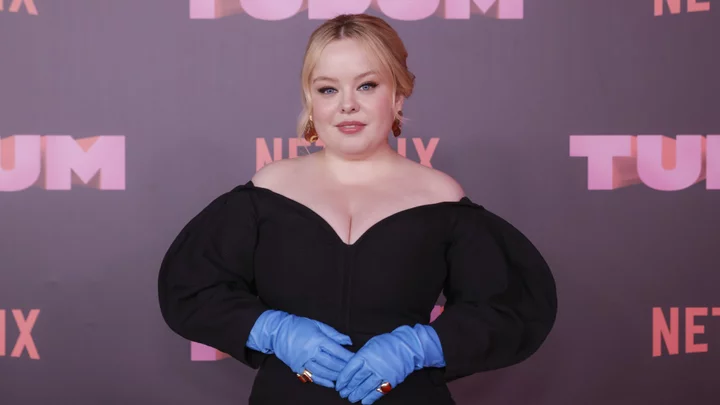NEW YORK (AP) — Yannick Nézet-Séguin is remaking the Metropolitan Opera from the bottom up.
When the 48-year-old conductor leans forward to extend his arms and emphasize vibrato or stretches high for a fortissimo during an orchestra concert, the red soles of his patent leather Christian Louboutins become visible. He nearly leaves the ground, a visual contrast to the final years of predecessor James Levine, who conducted while seated from 2001 on and from a motorized wheelchair during his final five seasons because of Parkinson's disease.
“I still feel that we are at the beginning of our journey together,” Nézet-Séguin said during a rehearsal break last week. “I can appreciate maybe the growth in our understanding of music, common understanding and the trust, so it feels much more like — I hate to say Yannick’s orchestra, because it’s not what it’s about — I’m there to just curate.”
Finishing his fifth season as music director, he takes the Met on its first tour since 2011 and the first solely of the orchestra since 2002, giving concerts from Tuesday through July 2 in Paris, London and Baden-Baden, Germany.
Nezet-Séguin has led eight new productions and five revivals as music director, among 23 stagings he’s conducted since his 2009 debut.
Music director of the Philadelphia Orchestra since 2012-13 and of Montreal’s Orchestre Métropolitain since 2000, Nézet-Séguin has teamed with Met general manager Peter Gelb to turn the 140-year-old Met to more contemporary music in an attempt to engage a wider audience. For years, the Met had been synonymous with Levine, its chief force as music or artistic director from 1976 to 2016, known for bushy hair and emphasis on Verdi, Wagner and Mozart.
“With the exception of the Vienna Philharmonic, great orchestras need music directors to create unifying forces artistically,” Met general Peter Gelb said. “They were still the same group of wonderful musicians but they were artistically rudderless without having a music director."
Among a Met record 2,552 performances from 1971 to 2017, Levine conducted just two operas written after 1951: John Corigliano’s “The Ghosts of Versailles” (1991) and John Harbison’s “The Great Gatsby.”
Nézet-Séguin has led five since becoming music director, a varied assortment of Poulenc’s “Dialogues des Carmélites,” Terence Blanchard’s “Champion” and “Fire Shut Up In My Bones,” Matthew Aucoin’s “Eurydice” and Kevin Puts’ “The Hours.” Nézet-Séguin is scheduled to conduct Jake Heggie’s “Dead Man Walking,” Daniel Catán’s “Florencia en el Amazonas” next season and Jeanine Tesori’s “Grounded” to open 2024-25.
“What’s striking is the catholicity of his taste. I think for a long time, certainly in the Levine years, it seemed sometimes there was one new piece a decade,” said Aucoin, who is in the early stage of adapting Dostoyevsky’s “Demons” for the Met. “What’s really healthy about the kind of aesthetic ecosystem that Yannik is nurturing is that it relieves the pressure on every piece to be a singular masterpiece in the same tradition. And it also genuinely exposes audiences to some sense of the real diversity of music that’s out there. ... You’ve got to write the bad operas to get to the good ones. Verdi knew that.”
Nézet-Séguin has given the Met a new look in his coiffure and attire. He dyed his short-dropped hair blond before the 2019-20 season and has traded the conductor’s uniform of tuxedos and tailcoats for outfits created by the Met costume department: colorful and sometimes floral shirts, a boxing robe for “Champion” and a blue band leader’s jacket with gold braid for Puccini’s “La Bohème.”
“He enjoys being a showman,” Gelb said, “but if anything it really is icing on the cake because what's most important is that musically he is deeply sound.”
Originally hired by the Met in 2016 for a music director term to start in 2020, Nézet-Séguin moved up his start to 2018-19. Twelve orchestra musicians have been hired since Nézet-Séguin became music director designate in 2017.
“With Jimmy, he would basically just sit on the podium, shape the music and everybody just sort of came in to him in a way. And it was more a communication through eye contact, occasionally a wry smile on his face,” said Donald Palumbo, the Met’s chorus master since 2007. “With Yannick, you always feel there’s an active process going on with him trying to pull things out of the chorus and out of the orchestra.”
Nézet-Séguin has led the original French version of Verdi’s “Don Carlos,” the first performances of Wagner’s “Lohengrin” since 2006, and in February conducts the return of Verdi’s “La Forza del Destino." He is to conduct a new-to-the-Met Claus Guth staging of Strauss’ “Salome” in 2024-25, along with a revival of “Die Frau ohne Schatten” and in later years a new staging of Wagner’s “Der Ring des Nibelungen” with a director still to be chosen.
He led a traveling party of 143 that flew to Paris last weekend and needed 76 trunks of equipment in a 747-400 freighter. The concerts feature Aucoin’s “Heath (King Lear Sketches),” which premiered at Carnegie Hall last week. New music has become more central than he envisioned.
“After `Fire,′ I went to Peter and said, look, the audience is sending us a message here,” Nézet-Séguin said. “We must take care of welcoming all the communities in our hall and so we need to reprogram and think: How can we build on these communities?”
Nézet-Séguin's enthusiasm stimulated composers who regarded the Met as a museum.
“This new approach to programing the Met has undertaken is obviously really exciting, not just for me, but for all composers everywhere, that they’ve placed contemporary music at the center of what they’re doing,” Puts said. “The first time the orchestra plays the piece, you sense his excitement. That’s really important for a composer to get to feel that enthusiasm.”

